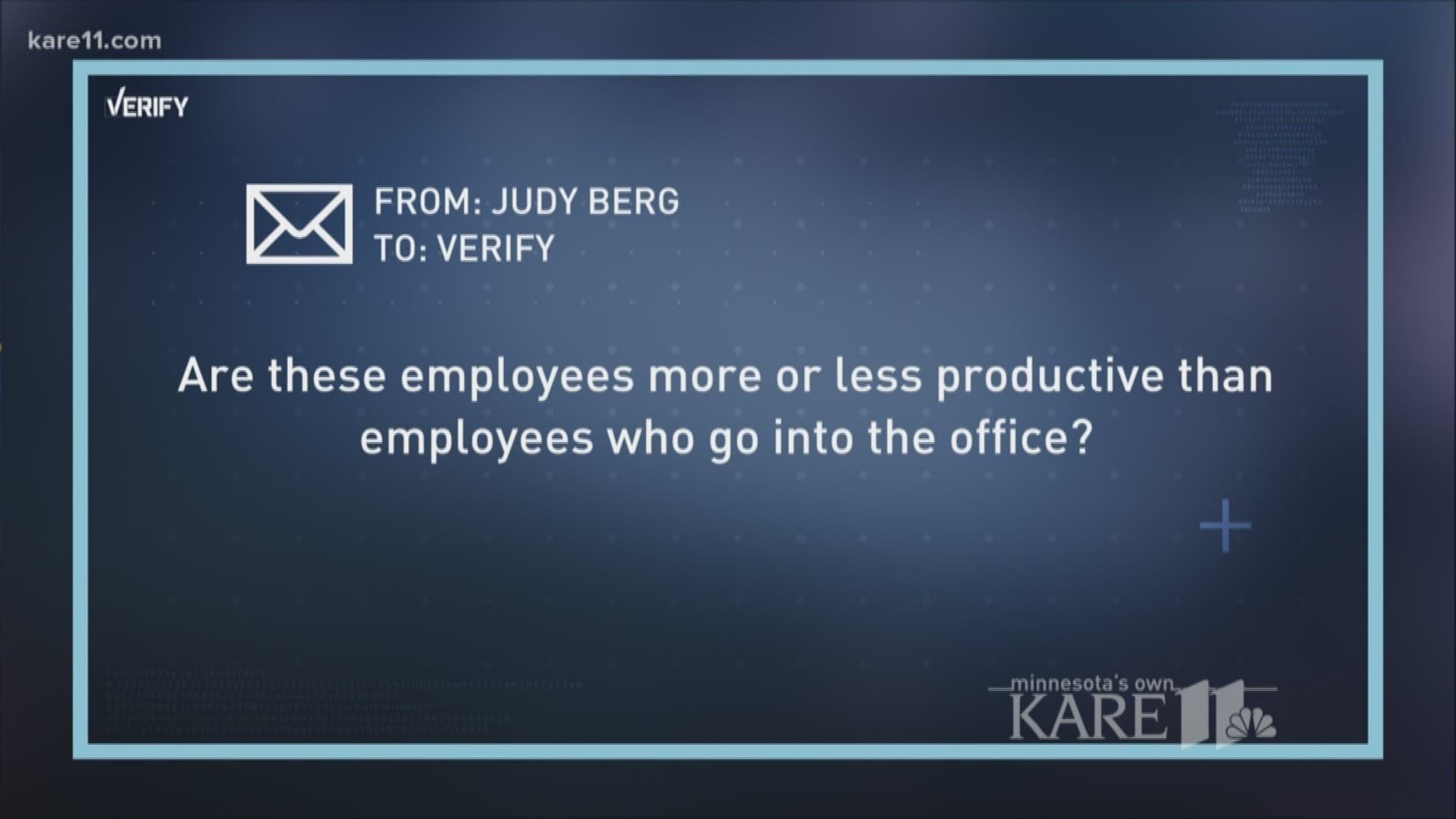MINNEAPOLIS - A growing number of people are giving up on the gridlock and getting their work done from home these days. A Gallup survey from earlier this year found as many as 43 percent of people now do some part of their job from home.
That led viewer Judy Berg to ask our Verify team, "More & more employers are allowing their employees to work from home. Are these employees more or less productive than employees who go into the office?"
We asked Kate Lister, who's tracked hundreds of studies and reports on the subject as president of Global Workplace Analytics.
"Companies that have actually measured it, shows increases between 15 and 55 percent productivity for people when they're working from home," Lister said.
We also talked to Dr. Phyllis Moen at the University of Minnesota's Flexible Work and Well-Being Center. Moen studied work flexibility at a Fortune 500 company over 18 months.
"We found many in the 'flexibility' group chose to work at home, with occasional face-to-face team meetings," Moen said. "This group felt more efficient, productive, and happier than those working under usual conditions, precisely because they felt they were 'in charge' of their lives and their work. Many mentioned the time sink of 1 to 2 hour commutes to and from work, compared to being able to work at a coffee shop or at home. Others mentioned the value of "being there" when their kids came home from school. Managers too endorsed the positive impacts, saying they were able to manage the work, not the person."
There can be too much of a good thing, though; Gallup found much lower engagement when people work remotely all the time. But both Moen and Lister say it doesn't need to be all-or-nothing; and simply having the option to work from home can be enough.
"Engagement goes up even if people have the option but don't use it," Lister said.
"Some (especially older men) continued to work regularly in the office, but said they appreciated the fact that they could work from home if they chose to," Moen found in her study. "Again, this points to the importance of a sense of control over the time and timing of one's work."
Some companies, like Best Buy and IBM, have pulled back on work-from-home programs in recent years, in favor of face-to-face interaction and collaboration. However, both Lister and Moen told us a balanced approach seems to work best.
"To make working at home be a productive experience requires the support of team members and managers, seamless communication and accessibility, and occasional face-to-face meetings," Moen said.
"Offices are becoming the places of collaboration and home is becoming the case of concentration," Lister said.

